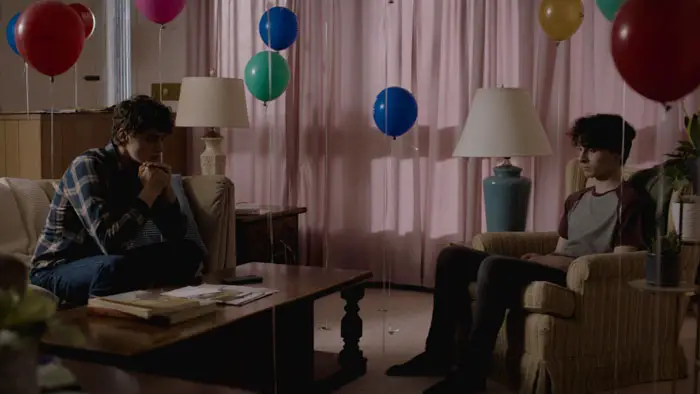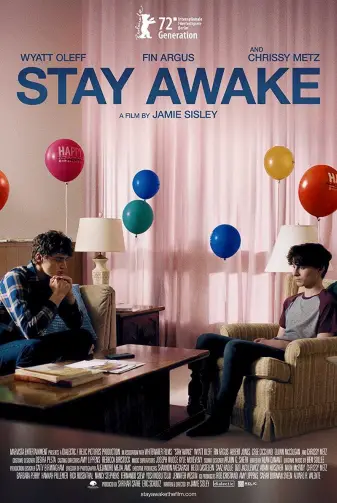
SFFILM 2022 FESTIVAL REVIEW! The truthful depiction of drug abuse in film has been a longstanding mission in Hollywood. In 1996, audiences and critics praised Danny Boyle’s Trainspotting for its ability to capture the reality of being addicted to drugs. In 2021, Eli Saslow’s Pulitzer Prize-winning Washington Post article How’s Amanda? A Story of Truth, Lies, and an American Addiction was adapted into the Sundance hit Four Good Days. While premiering to mixed reviews, audiences found that sometimes cinema can be a way to heal. That much is certainly true for first-time feature writer/director Jamie Sisley’s Stay Awake, based on his 2015 short film.
19-year-old Derek (Fin Argus) and his 17-year-old brother Ethan (Wyatt Oleff) have been through quite a bit in their short lives. While navigating the pressures of teenage life, they often must tend to their mother, Michelle (Chrissy Metz), who suffers from a devastating addiction to prescription drugs. As the siblings’ hopes for their futures begin to become their realities, Derek and Ethan must find a way to help their mother get clean and sober while sparking up the courage to leave and chase their dreams.

“…Derek and Ethan must find a way to help their mother get clean and sober…”
In his feature-length debut, Sisley offers viewers intricate and realistic storytelling with respect to families dealing with addiction. Drawing from personal experiences, Stay Awake explores the disease through the eyes of the teenage brothers with grace and empathy. The filmmaker leaves flash behind, opting for a modest story that reveals the complexity of drug dependency and the people it intensely affects. Within the unraveling of such a debilitating affliction lies a beautiful story about brotherhood, chasing dreams, and coming to terms with reality.
Something that Sisley does well within the script is establishing a realistic vantage point of dependency. Oftentimes, people chase temporary relief from life’s burdens for reasons that may even be unknown to them. However, when that short-term liberation no longer offers serenity, it can force people towards extremes as they can no longer bear the harsh weights of depressive thoughts. That’s what happens to Michelle. There’s no explanation, nor is there a long speech about why she succumbs to her disease. She just does. And that’s one of the most real and sincere elements that the director includes in the movie.

"…a way for filmmakers to heal from their trauma."


